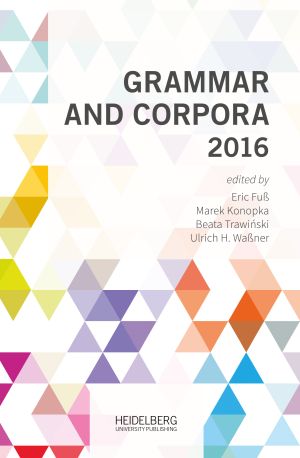Zitationsvorschlag
Lizenz (Kapitel)

Dieses Werk steht unter der Lizenz Creative Commons Namensnennung - Weitergabe unter gleichen Bedingungen 4.0 International.
Identifier (Buch)
Veröffentlicht
Emergence Phenomena in German "W-immer/auch"-Subordinators
Abstract The present study is concerned with the distributional patterns of the irrelevance particles immer ‘ever’ and auch ‘also’ in German universal concessive conditionals and free relatives (e.g. was immer er auch sagt ‘whatever he says’). Whereas irrelevance is conveyed by a single element in a fixed position in languages like English (-ever), immer and auch occur in multiple positions and combinations. Following the example of Leuschner (2000), the distribution of particles and their combinations is documented and explained using functional motivations. Compared with Leuschner (2000), however, the present study is based on a much larger sample of 23,299 clauses with the W-words was and wer (incl. their inflected forms) from the DeReKo-corpus, allowing for a far more detailed statistical analysis. Special attention is devoted to the distribution of immer and auch (including their combinations) in full subordinate clauses vs. elliptically reduced forms, and to the nature of the resulting patterns as a case of emergent grammar.
Keywords Concessive conditionals; irrelevance; particles; subordinators; emergent grammar; corpus study






